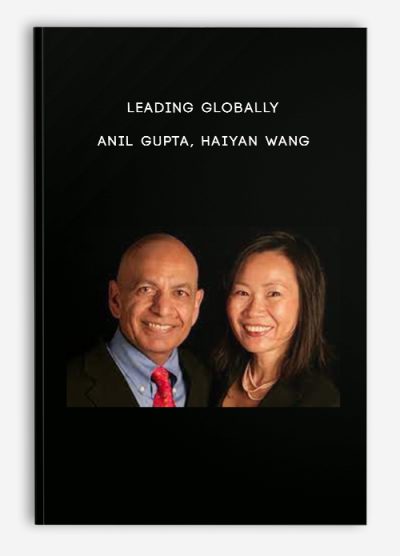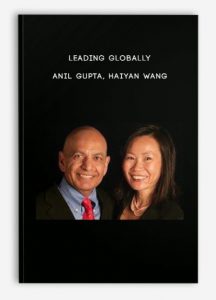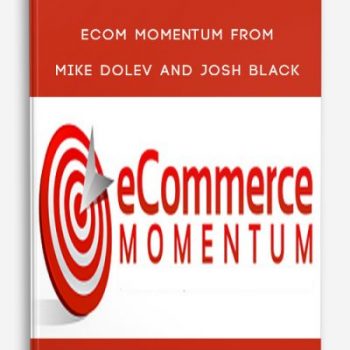Leading Globally – Anil Gupta, Haiyan Wang
Description:
Global expansion may help a business develop quicker, profit from worldwide benefits and tap into the particular benefits of diverse regions. However, global growth also brings several obstacles like exposure to foreign cultures and markets, difficulty coordinating extensive activities, and increased complexity in organizations. Whether global growth adds or destroys value depends on the capacity of your firm to acquire local skills on multiple markets and manage its worldwide network efficiently.
This Leading Globally course is followed by Anil Gupta and Haiyan Wang, two of the world’s top experts in global strategy, as they learn how to optimize the advantages and minimize costs and hazards of leading a multi-market organization. Find out how to connect with the local market, handle different cultures, engage employees in international subsidiaries, develop a global attitude, much and more.
Here is the course curriculum of Leading Globally:
Introduction
Foundations for Building Global Organizations
Globalization’s advantages and disadvantages
How distance can be both a hindrance and an advantage
Four global organization models
Chapter Quiz
Building Local Capabilities
How to establish a relationship with the local market
Develop a local leadership team
Chapter Quiz
Managing Your Team across Borders
Tips for managing across cultures
Leading global teams
Managing and sharing information across borders
Utilizing a single language to communicate with your worldwide team
Chapter Quiz
Nurturing Global Talent
How to develop your employer brand
Cultivate employee engagement
How to groom global leaders
Management tips for expatriate assignments
Chapter Quiz
Leading the Global Organization
How to develop a single-company culture
Cultivate a global mentality
Conclusion
Additional resources and next actions
Forex Trading – Foreign Exchange Course
Want to learn about Forex?
Foreign exchange, or forex, is the conversion of one country’s currency into another.
In a free economy, a country’s currency is valued according to the laws of supply and demand.
In other words, a currency’s value can be pegged to another country’s currency, such as the U.S. dollar, or even to a basket of currencies.
A country’s currency value may also be set by the country’s government.
However, most countries float their currencies freely against those of other countries, which keeps them in constant fluctuation.














Lord –
This is Digital Download service, the course is available at Vincourse.com and Email download delivery.